UAE Digital Asset Regulation: The Global Benchmark?
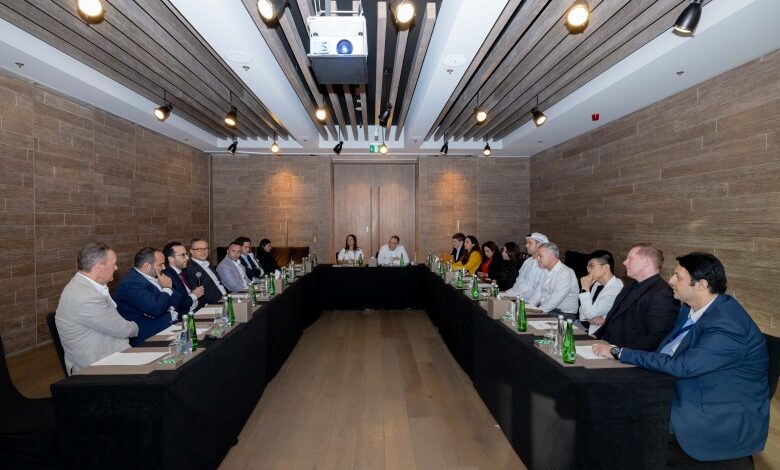
This was the central theme of a closed-door roundtable hosted before the TOP 20 Performing CEO event in Dubai on April 29th. Held under Chatham House rules, the gathering brought together a cross-section of participants from the banking sector, stablecoin issuers, tokenization firms, legal experts, and licensed crypto exchanges. While discussions covered a range of topics from regulatory frameworks to stablecoins, real-world asset tokenization, and trade finance, a key question emerged: As the United States awakens to digital assets with renewed bipartisan political support, is the UAE ready to solidify its position as a global hub—or will it face stronger competition?
Many participants agreed that the UAE’s regulatory clarity remains one of its biggest strengths. Jurisdictions like VARA in Dubai and ADGM in Abu Dhabi were repeatedly credited for offering structure, licensing frameworks, and openness that attracted a wave of digital asset firms over the past two years. Several attendees emphasized that the UAE offers something the U.S. cannot: long-term regulatory continuity and vision.
But with the U.S. now introducing bipartisan support for crypto bills and seeing improved sentiment among institutional players, some roundtable attendees noted that companies originally planning to migrate from the U.S. to the UAE have paused, waiting to see how things play out post-election.
Despite that, most did not perceive the U.S. resurgence as a direct threat. One participant described the UAE as “effectively the capital of the rest of the world,” tying the comment to the earlier discussion that, while the UAE may be a small market in terms of population, its ambition and infrastructure are clearly intended to serve a regional and international audience. pointing to the nation’s strategic location, connectivity to Asia, Africa, and Europe, and business-friendly environment.
While some raised concerns about the UAE’s relatively small domestic market—roughly 8 million people—the discussion quickly shifted. Participants agreed that the UAE was never meant to cater only to its internal population. Instead, its regulatory frameworks and digital asset infrastructure are designed to serve regional and international players, positioning the country as a base for global expansion.
VARA as a Benchmark for Complex Regulation
As the UAE welcomes more Virtual Asset Service Providers (VASPs), questions surfaced around whether UAE-based firms will eventually need to enter U.S. markets to scale. One example referenced was a UAE-based publicly listed mining company considering a dual listing in the U.S. due to increased institutional demand and industry visibility on Wall Street. However, participants argued that entities operating under a VARA license should be considered well-positioned to navigate complex jurisdictions globally, suggesting VARA could serve as a regulatory benchmark.
Some professionals noted that VARA’s licensing process—which demands clarity in business models, compliance structures, and token issuance—is already stringent. If globally recognized, such a benchmark could help fast-track UAE-based VASPs into new markets, particularly if regulatory passporting or mutual recognition agreements were to be explored.


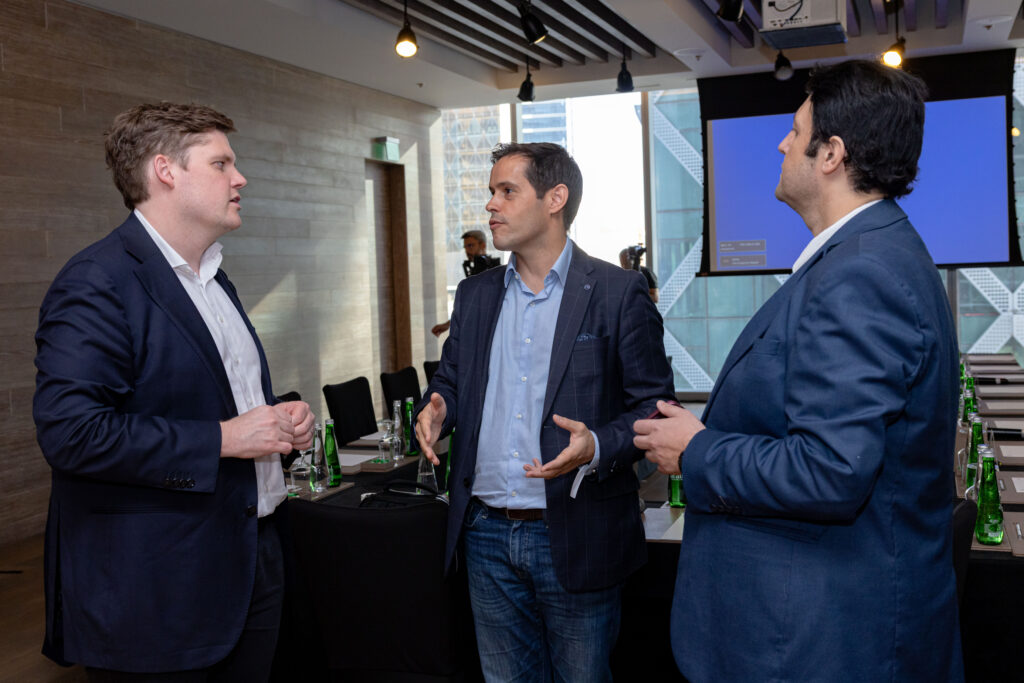
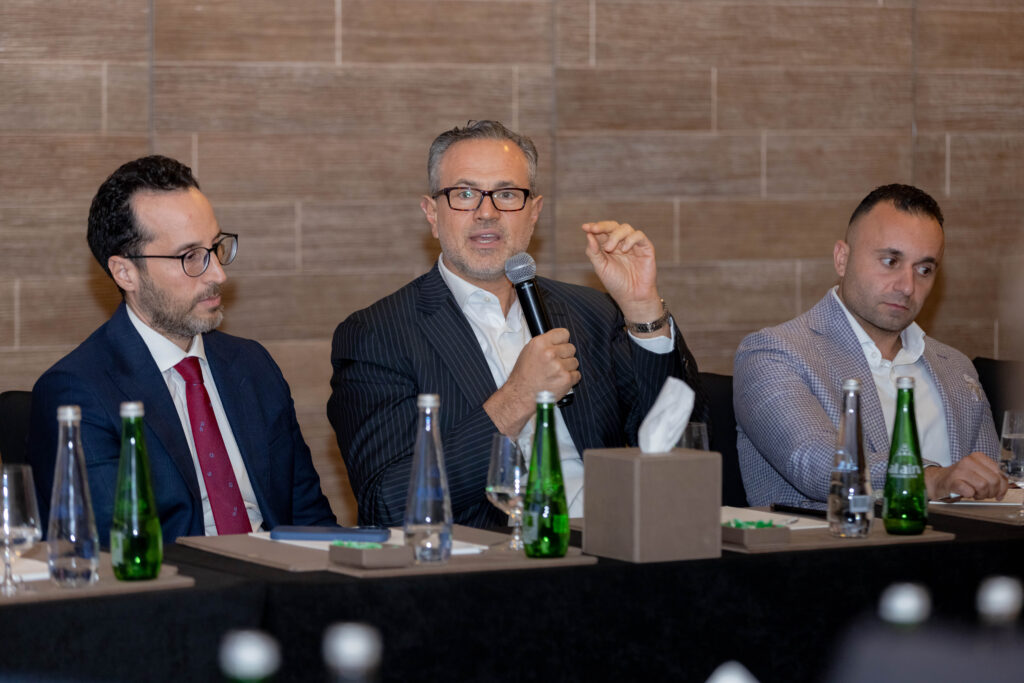
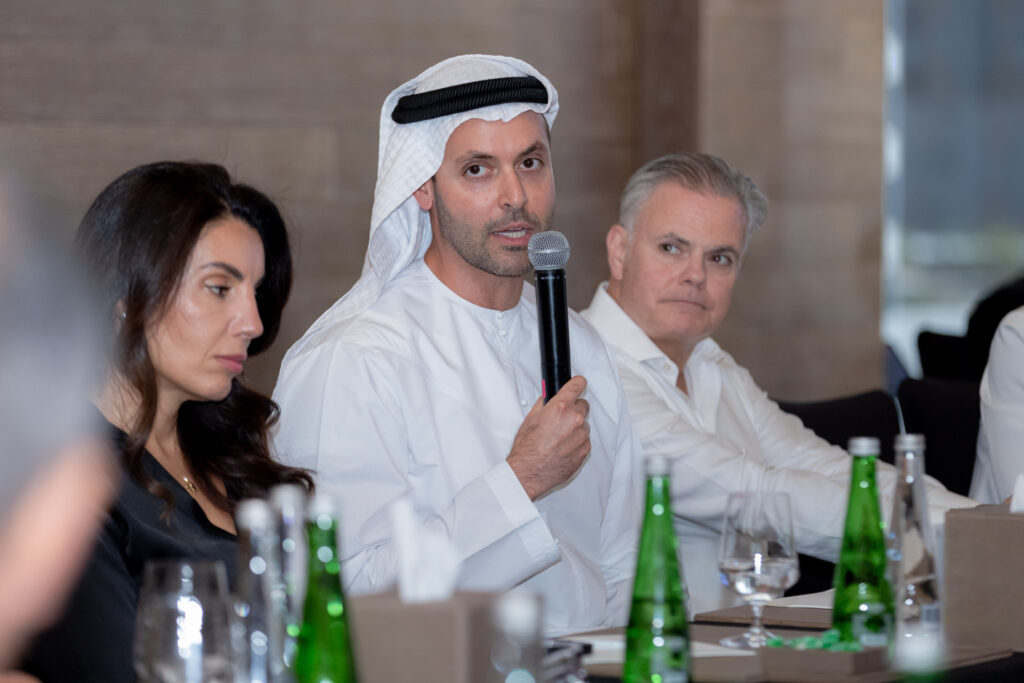



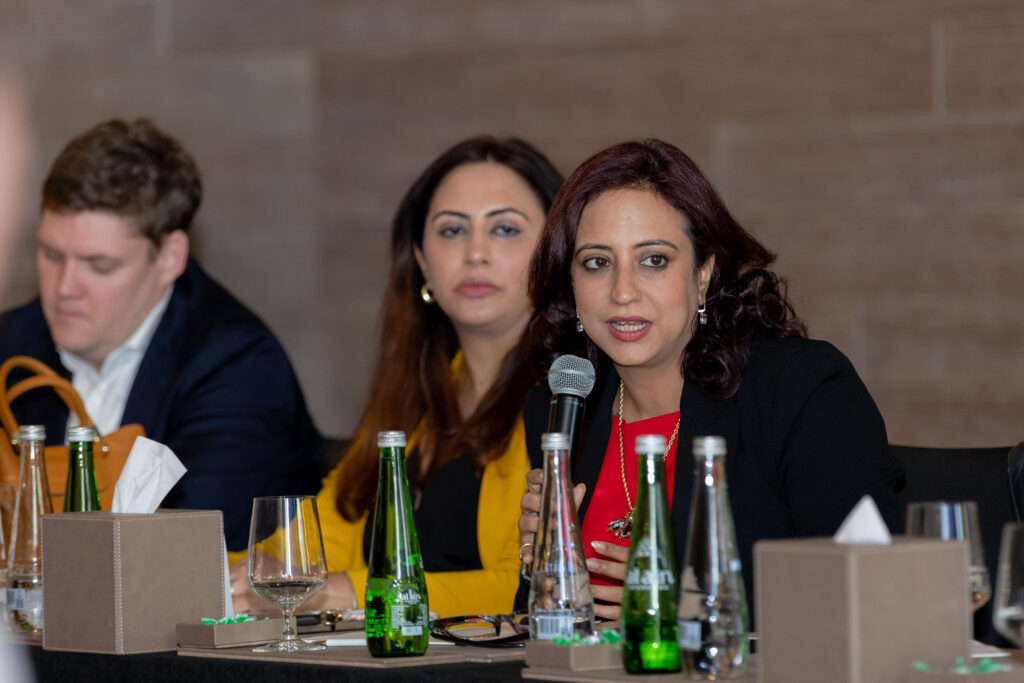
Stablecoins: It’s All About the Experience
Stablecoins dominated much of the conversation. With multiple UAE-regulated stablecoins on the verge of launching—including the recently licensed AEcoin—participants debated what will define success. While technical stability and regulatory compliance are critical, it’s the end-user experience that will determine which stablecoins thrive.
The user experience isn’t just about seamless payments. Participants shared multiple use cases: using stablecoins for cross-border supplier payments, paying salaries, funding trade finance operations, and enabling merchant transactions. These use cases are made possible through ecosystem partnerships—with banks, fintech platforms, and point-of-sale (POS) providers—that collectively ensure a smooth and accessible user experience across both consumer and enterprise layers. paying salaries, or funding treasuries during trade finance gaps. One banker highlighted a three-phase rollout strategy: starting with conversion rails and merchant settlement, followed by payroll integration, and ultimately enabling tokenized trade finance through digitally native instruments.
What emerged clearly was that stablecoin adoption will hinge on strategic partnerships—with banks, fintech platforms, and point-of-sale providers—to ensure usability in both retail and business settings. Many participants emphasized that the most successful projects will be those designed with user needs at the center, backed by meaningful collaborations that enhance daily utility.
When the discussion touched on Central Bank Digital Currencies (CBDCs), participants showed little enthusiasm. Most agreed that CBDCs don’t appear to offer compelling benefits at this stage, especially when compared to the flexibility, speed, and partnership-driven models emerging from private stablecoin issuers.
Several participants also pointed to the UAE Central Bank’s recent move in issuing a Payment Token regulation as a crucial step forward. The regulation offers a structured framework for dirham-backed stablecoins, granting licenses to issuers like AEcoin. Participants viewed this as a signal that the UAE is serious about anchoring digital finance within the banking system, rather than outside of it.
RWA Tokenization: Momentum Despite Setbacks
The group also addressed tokenization of real-world assets (RWAs), especially in real estate and commodities. While optimism remains high, one participant referenced the recent collapse of the OM token from Mantra, a project that had gained visibility for its work in the space. Others were quick to clarify: the OM token’s volatility should not be confused with the broader tokenization effort, especially as regulatory structures in Dubai (via VARA) and in Abu Dhabi (via ADGM) continue to mature.
For tokenization to scale, participants agreed, the regulatory environment must better coordinate across authorities such as SCA, the UAE Central Bank, VARA, and ADGM. One lawyer argued that while each body now has clearer mandates—commodities with SCA, payments with the UAE Central Bank, and virtual assets with VARA—the lack of cross-regulator alignment still creates bottlenecks for multi-service providers.
Nonetheless, several firms present confirmed they are moving forward with regulated tokenization pilots, including gold, diamonds, and off-plan real estate.
Trade Finance: A Blockchain Use Case with Real Demand
The conversation also spotlighted trade finance as a natural blockchain use case. Participants noted that tariffs, delays, and route changes—especially in Asia-U.S. corridors—have complicated traditional trade. Tokenizing trade documents and invoices was cited as a way to improve liquidity, particularly for MSMEs that struggle to access credit.
Solutions that combine document digitization with DeFi liquidity pools were highlighted, with examples of tokenized bills of lading being used as collateral for short-term financing. However, the challenge remains global interoperability. While the UAE, Singapore, and Bahrain are advancing in this space, many jurisdictions still lack the infrastructure or regulatory clarity.
Looking Ahead
While the UAE faces growing competition from an increasingly crypto-friendly U.S., participants at the roundtable did not believe the momentum would shift drastically. If anything, the UAE’s first-mover advantage, combined with long-term vision and coordinated policy efforts, remains its strongest card.
But coordination is now key. Whether for passporting regulations across Gulf states, or aligning tokenization frameworks among financial authorities, the UAE’s next leap forward will depend not just on clarity—but on coherence.
As one participant put it: “We’ve won the race to regulate. Now we need to win the race to unify.”
NB: This article reflects the collective insights of the roundtable participants, who joined under Chatham House rules. They are: Belal Jasoma, Sean Mchugh, John Lillywhite, Jorgee Carrasco, Mehtap Onder, Kokila Alagh, Abdulla Mukalled, Dishang Patel, Mazen Rasamny, Munaf Ali, Tim Popplewell, Hasan Al Fardan, Ramez Rafeek, Omar Abbas, Oli Harris, Sheetal Mirani, Saloi Benbaha, Wang Hao, Mohammed W. Khayata and Moderated by Walid Abou Zaki





